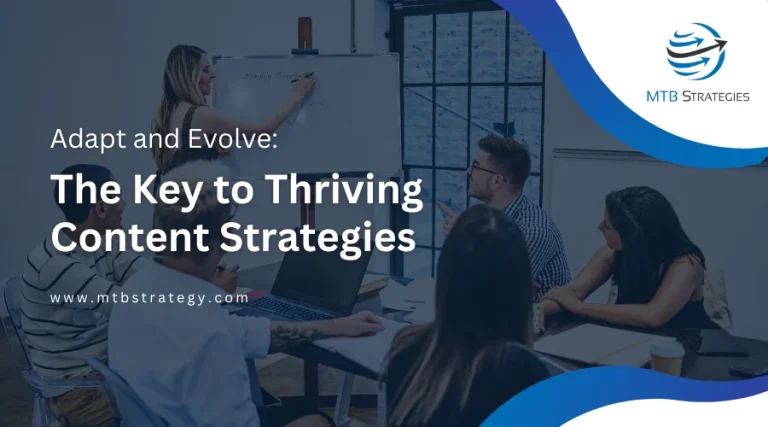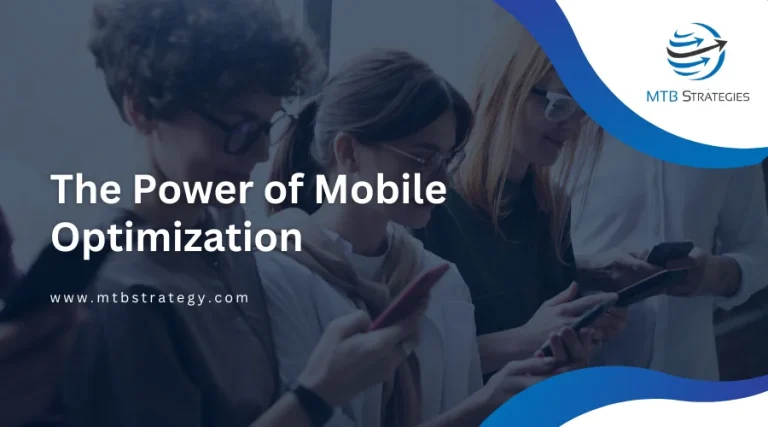Search engine optimization (SEO) is what I’m most excited about.
No, you can’t get around it. If you don’t follow Google’s rules, your users won’t have a good time. The tried-and-true methods are no longer effective. With today’s quick websites and unique content that answers search queries succinctly, a strong SEO strategy now requires much trust.
Defining SEO Strategy
SEO strategy is all about making your audience’s search experience the best it can be. A well-executed SEO plan displays your brand to customers at every stage of the buyer’s journey. A trusted and familiar resource for customers at every level of the purchasing funnel is the result of this strategy.
Factors to Consider in Creating SEO Strategies
Here are essential ideas you should remember when developing your organic search strategy rather than a template that could lead you down the wrong route. Whether you’re a newbie to SEO or a seasoned pro, it’s critical that you master these principles.
Before embarking on an extensive SEO campaign, it is imperative that you establish your objectives. After all, your SEO efforts won’t have a demonstrable return on investment if you don’t have defined goals in mind. The results of SEO must be linked to higher-level measures like revenue if it is to be effective. To determine your process goals, begin by identifying your desired marketing outcomes.
Branding & Reputation
The relationship between branding and SEO is not always clear-cut, but a strong brand reputation, in many cases, improves your organic search results. More fans can be gained through a powerful brand. In other words, the more people who know and love your brand, the more people will talk about it, engage with it, and link to it.
In a competition, the strongest brand is likely to get more traffic and backlinks than its rivals, which can help Google determine that the brand is credible.
Content & Search Intent
As Google’s primary search purpose, understanding search intent is essential when conducting keyword research. That is to say, Google’s goal is to deliver the most relevant results to users as fast as possible.
You can’t go wrong if you keep your landing pages focused on satisfying the user’s search goal. A successful strategy aligns keyword intent with page content to provide the most outstanding possible user experience.
Content SEO
If your content marketing strategy is SEO-focused, you’ll be better able to meet the needs of your target audience when they’re looking for information on a particular subject. As a result, you’ll get many backlinks and keep your consumers happy.
International SEO
If your company has a global reach, your SEO strategy should consider this by optimizing your site for different countries worldwide. The country and language can be seen by using an international-friendly URL format. Of course, each localized version of the website should also be available.
Hreflang tags can assist Google in recognizing which language is used on a specific page if the same page content is utilized in various international versions of the site. When people seek a product or service in a different language, Google will display the site’s correct language version in the search results.
Keyword Research
A sound SEO strategy is built on a foundation of thorough keyword research. Content and web pages relevant to your audience’s search queries are essential. For huge brands, it’s not uncommon to create an excessive amount of material that doesn’t target any specific keyword phrases but instead continually uses the same term.
It is possible to avoid this error by conducting thorough keyword research. You’ll be able to cover as much ground as possible with sophisticated keyword research without compromising the quality of the keywords you’re using. This will result in more visitors, interaction, and conversion rates.
Local SEO
Local SEO is a must-have discipline in your search engine optimization plan if you are a merchant or service provider with a physical location. There is also the matter of whether or not you have an actual storefront if your target market is located in a specific area.
Keep your Google My Business page up to date and any other local listing sites available online. Yelp, Citysearch, and other local directories would fall under this category. All local listings should have the same NAP (name, address, and phone number).
Local content should be optimized for your sites and content, such as state, city, and even neighborhood names. It’s also possible to optimize for “near me” searches to expand your area’s reach.
Market Analysis
A technical SEO audit could help you dig further into your findings. Their website should be checked out for its general well-being, as well as for its SEO implementation and responsiveness.
Of course, your primary competitors should be included in your competitive analysis. The search engine results page (SERP) is also an excellent place to have your online competitors. While they may not be direct competitors, websites that appear on the first page of Google for your chosen SEO keywords are worth investigating.
Mobile Search
Build a mobile-friendly website that loads quickly and is easy to use on smartphones. Ensure that your SEO material adequately focuses on your target keyword if your mobile content differs from your desktop. Use Google’s Mobile-Friendly Test to see how the search engine sees your site. You can also use Google’s Mobile Usability tool inside Google Search Console to detect any possible mobile problems.
Non-Branded vs. Branded SEO
Your clients may be about to make a purchase when they encounter an overwhelming number of 2-star reviews. Many people will pause if they see a mound of bad reviews on ComplaintsBoard or TrustPilot. You may write a check to your rivals instead. In addition, lousy publicity (both online and offline) could harm future sales.
Your SEO approach must consider branded and non-branded search inquiries to gain the most market share
Off-Page Link Building
The term “off-page SEO” (sometimes known as “off-site SEO”) refers to any SEO efforts you make that are not directly related to your website. Link building, getting published on other websites, and being interviewed are all standard methods of achieving this end.
Keep in mind that not every link is made equal. With a domain authority of 95, one backlink from a reputable site is worth tens of thousands of links from unreliable sites. The importance of PageRank and trust cannot be overstated. Lastly, know that you must get backlinks from different sources. Getting 100 links from the same website isn’t as beneficial as getting 100 links from 100 other high-quality domains.
On-Page SEO
Titles, headings, picture alt text, anchor text, search intent, schema markup for featured snippets, and more are all part of on-page SEO. Your page’s title tag, H1, and subheadings are the most crucial on-page SEO ranking factors.
On the other hand, your plan should go beyond just using keywords and meta descriptions. Search purpose, linked entities, depth, and breadth of coverage, as well as internal links, must be taken into consideration. Meta descriptions can improve SERP click-through rates even though they aren’t used as a ranking signal.
Press Releases
Search engine optimization (SEO) can assist you in improving your online reputation, paid search, public relations, social media, and website. You’ll get better results with all of your marketing, including SEO, if you take a more comprehensive approach.
To naturally pass SEO value, include essential keywords in PR spots. Thus, SEO helps to improve online performance and the return on investment from PR victories. Off-page SEO relies heavily on PR as well. As you cultivate relationships with journalists and media, you expand your options for obtaining high-quality, natural backlinks.
SEO in Conversion Funnel
When building an SEO strategy, keep in mind the whole customer journey.
eCommerce SEO should go beyond product and category pages, even if you run a substantial online retail firm. Consider how a customer’s needs change over their relationship with your brand.
SEO in Marketing Strategies
Search engine optimization (SEO) can serve as a valuable compass for developing marketing strategies by acting as an insight engine for search data. Rather than focusing on a single campaign, you should focus on a plan that is tailored to your audience and the competitive landscape.
A persona-based approach to digital marketing lets you choose the best channel for each piece of content, whether paid or organic social media post.
SEO Scalability
Scalability is a significant issue for large corporations when creating an SEO website strategy. Having an in-house SEO staff is a huge advantage. They have the know-how to get things done quickly and effectively. Many cannot produce large amounts of SEO material or create high-quality links.
When expanding your SEO firm, consistency and standardization are essential components. To that aim, lead cross-departmental collaboration with web development, brand management, product management, and sales. You should eliminate silos and establish clearly defined processes and systems to know what’s happening.
A large company’s leaders and other divisions must be updated on the company’s progress toward its stated goals. It is possible to distribute SEO reporting to many people by using dashboards. Tools like Google Analytics, Google Search Console, SEMRush, and Ahrefs make it simple to gather data.
SERP Click-Through Rate
To increase your CTR, it’s critical to differentiate your message in the search results. It’s one thing to go to the top of Google’s search results page. It’s another matter entirely to have it appear high enough in search results for people to take an interest in it.
Make sure your keywords appear on the first page of Google for your target searches. Analyze SERP listings for messaging and copy. Is it possible that they’re all saying the same thing? Do you find it difficult to tell one search result from another? The best way to stand out in a crowded SERP is to utilize more captivating language that aligns with the searcher’s goal.
Technical SEO
The crawling, link equity distribution, and user experience may be affected by technical issues. Even though you have many backlinks, Google’s algorithm is less likely to rank your site highly.
The core of your search engine optimization strategy is technical SEO, and it should be given the highest priority. Your content and backlinks will significantly impact your organic search rankings if you have an excellent technological foundation.
Utilize Your Strengths
Using your strengths to your advantage in organic search results is a proven method for success. How? Focus on improving your rankings in the areas where you already excel.
As long as Google views your brand as authoritative and relevant, you’ll notice faster and more consistent progress thanks to the halo effect. So you can focus on one area at a time and become the best at it before moving on to more difficult ones.
Video SEO
When you use video SEO effectively, your content has a better chance of ranking well in Google’s search results. As a result, video creation and optimization will positively impact your digital marketing approach.
Once you’ve narrowed down your target keywords, it’s time to start making films that outperform the competition. Optimize the page’s title, description, and other meta information. Include a transcript of the video and a video sitemap to boost your optimization. Make sure to put the video on your website and link to it. For a great user experience, make sure your video matches the page it’s on.
Voice Search
Searches can now be performed by speaking to a device instead than typing them in. The use of voice-activated technologies goes far beyond simple task management. Voice search is quickly becoming the preferred approach when finding information on the internet. Find the most frequently asked questions on forums like Amazon, Reddit, Quora, and other Q&A websites using tools like BuzzSumo Question Analyzer.
Monitor Your Pogress & KPIs
You can’t just “set it and forget it” when it comes to SEO success. You need to optimize your site, generate valuable content, and build a network of reliable backlinks.
Track just the relevant metrics to your goals by defining KPIs upfront.
Aside from that, it’s all a waste of time. If you want the best outcomes, focus on the 20% of activities that account for 80% of your output.
Conclusion
You should always be prepared to take advantage of emerging SEO trends as they appear (voice search was a non-starter years ago, for example). Monitoring searcher activity across various device types, contexts, and circumstances will become increasingly critical in the age of ubiquitously connected gadgets.
When we think of Google searches on a laptop or smartphone, we often think of voice searches. However, this could change in the future. When it comes down to providing an excellent user experience that matches search intent, the essentials won’t change.





